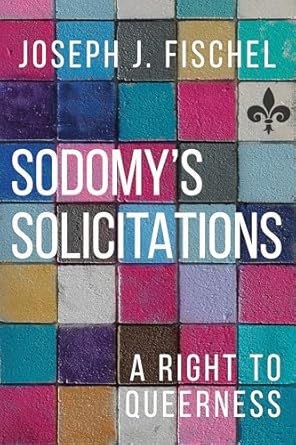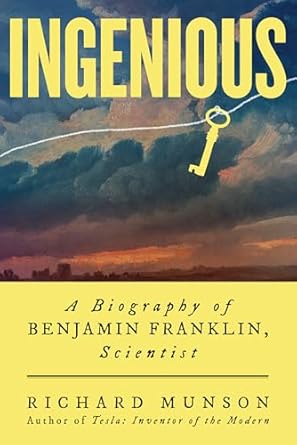 Shirley Clarke: Thinking Through Movement explores many of Clarke’s films in depth, showing the ways in which she uses situation, context, space, time, real vs scripted life, and a networked and collaborative approach to working that focuses on the filming process itself as the main point of creativity rather than a pre-conceived plan. The result is a powerful way of looking at dance and filmmaking that can be applied to any kind of artistic endeavour.
Shirley Clarke: Thinking Through Movement explores many of Clarke’s films in depth, showing the ways in which she uses situation, context, space, time, real vs scripted life, and a networked and collaborative approach to working that focuses on the filming process itself as the main point of creativity rather than a pre-conceived plan. The result is a powerful way of looking at dance and filmmaking that can be applied to any kind of artistic endeavour.
Tag: nonfiction
A review of Sir Thomas Browne: The Opium of Time By Gavin Francis
 Francis’ impeccable prose style takes us into the cinematic tour de force of the time and ideas of Sir Thomas Browne that make us appreciate the world we live in with specialized medicine and technological advances. At the same time make us weary of the future by ending on the subject of mortality.
Francis’ impeccable prose style takes us into the cinematic tour de force of the time and ideas of Sir Thomas Browne that make us appreciate the world we live in with specialized medicine and technological advances. At the same time make us weary of the future by ending on the subject of mortality.
An interview with by Sahar Swidan and Matthew Bennett
 The authors of Mastering Chronic Pain talk about their new book and why they wrote it, the importance of empowering readers, biggest misconceptions about pian, how they began collaborating and what makes for a succesful collaboration, what’s in the pipeline and more.
The authors of Mastering Chronic Pain talk about their new book and why they wrote it, the importance of empowering readers, biggest misconceptions about pian, how they began collaborating and what makes for a succesful collaboration, what’s in the pipeline and more.
A review of Sodomy’s Solicitations by Joseph J. Fischel
 The book is erudite, playful at times, and well-argued. But whether these two relatively straight-forward propositions require so much theorizing and intricate prose is debatable, at least outside the groves of academe, where the author writes from a perch at Yale. One can imagine functionaries in the current White House looking at this book and immediately barking out orders to cut federal funding for New Haven.
The book is erudite, playful at times, and well-argued. But whether these two relatively straight-forward propositions require so much theorizing and intricate prose is debatable, at least outside the groves of academe, where the author writes from a perch at Yale. One can imagine functionaries in the current White House looking at this book and immediately barking out orders to cut federal funding for New Haven.
A review of Ingenious: A Biography of Benjamin Franklin, Scientist by Richard Munson
 Throughout this biography, Munson makes clear that Franklin’s scientific engagement with the world is a perpetual touchstone. No matter where he is on the planet—striving in his early life in the states, representing the states in England, working as a wartime ambassador in France, or traversing the ocean in between—Franklin is continuously scientifically inquisitive, continuously meeting and corresponding with other investigators, continuously inventing, and continuously devising and refining experiments.
Throughout this biography, Munson makes clear that Franklin’s scientific engagement with the world is a perpetual touchstone. No matter where he is on the planet—striving in his early life in the states, representing the states in England, working as a wartime ambassador in France, or traversing the ocean in between—Franklin is continuously scientifically inquisitive, continuously meeting and corresponding with other investigators, continuously inventing, and continuously devising and refining experiments.
A review of Exiles in New York City by Philip T. Yanos
 One thing is clear: deep journalistic inquiry, such as Yanos’ Exiles in New York City, sheds much-needed light on a social morass that has been with us far too long. His reportorial zest, coupled with an inspiring sense of humanity and deep inquiry, is present on every page of this eye-opening book. This is a book about how we choose to live now, even when some of our lives are sequestered, shaded from prying eyes behind a meshwork of barbed wire fence.
One thing is clear: deep journalistic inquiry, such as Yanos’ Exiles in New York City, sheds much-needed light on a social morass that has been with us far too long. His reportorial zest, coupled with an inspiring sense of humanity and deep inquiry, is present on every page of this eye-opening book. This is a book about how we choose to live now, even when some of our lives are sequestered, shaded from prying eyes behind a meshwork of barbed wire fence.
A review of What Matters in Jane Austen? by John Mullan
 For me, the book resonates on a deeply personal level. Having studied Austen in graduate school, I’ve long been fascinated by the quiet radicalism beneath her polished surface. While she never staged open rebellion against Regency norms, her fiction hums with a subtle critique of its social constraints—expressed through irony, narrative silence, and the moral gravity of her heroines’ choices. Mullan illuminates this with expert precision, showing how Austen’s critical eye is woven into every level of her storytelling.
For me, the book resonates on a deeply personal level. Having studied Austen in graduate school, I’ve long been fascinated by the quiet radicalism beneath her polished surface. While she never staged open rebellion against Regency norms, her fiction hums with a subtle critique of its social constraints—expressed through irony, narrative silence, and the moral gravity of her heroines’ choices. Mullan illuminates this with expert precision, showing how Austen’s critical eye is woven into every level of her storytelling.
A review of Vulture Capitalism by Grace Blakeley
 Blakeley, a thirty-two year old Oxford-educated economist/journalist, says that liberal democracies under capitalism are not true democracies. As things stand now, government and capital work together to help the rich get richer and the poor get poorer. True democracy is economic democracy, in which citizens not only vote but also have real control over their lives.
Blakeley, a thirty-two year old Oxford-educated economist/journalist, says that liberal democracies under capitalism are not true democracies. As things stand now, government and capital work together to help the rich get richer and the poor get poorer. True democracy is economic democracy, in which citizens not only vote but also have real control over their lives.
A review of Girl on Girl by Sophie Gilbert
 Sophie Gilbert does some major uncovering in this book, digging deep into the culture’s recent past to unearth the filthy White underbelly that lies beneath. Part archeologist, part pallbearer, she exhumes the back story and brings it kicking and screaming into the light of day. Gilbert writes, “In 1995, a self-help tsunami of a book titled, innocently, The Rules, advised women who wanted to get married to look to 1950s feminine mores for guidance.”
Sophie Gilbert does some major uncovering in this book, digging deep into the culture’s recent past to unearth the filthy White underbelly that lies beneath. Part archeologist, part pallbearer, she exhumes the back story and brings it kicking and screaming into the light of day. Gilbert writes, “In 1995, a self-help tsunami of a book titled, innocently, The Rules, advised women who wanted to get married to look to 1950s feminine mores for guidance.”
A review of The Hole in Your Life by Bob Rich
 Bob Rich is an expert on the subject. He has been a psychotherapist for over 30 years, both in a clinical practice and through extensive volunteering of his services in multiple forums. He also has firsthand experience of the most intense kind of grief, having recenly experienced the loss of his own daughter Natalie to liver cancer in December 2024. The Hole in Your Life, Rich’s 20th book, is dedicated to Natalie and draws heavily on both personal experience and Rich’s extensive clinical understanding of the many pathways grief can take.
Bob Rich is an expert on the subject. He has been a psychotherapist for over 30 years, both in a clinical practice and through extensive volunteering of his services in multiple forums. He also has firsthand experience of the most intense kind of grief, having recenly experienced the loss of his own daughter Natalie to liver cancer in December 2024. The Hole in Your Life, Rich’s 20th book, is dedicated to Natalie and draws heavily on both personal experience and Rich’s extensive clinical understanding of the many pathways grief can take.